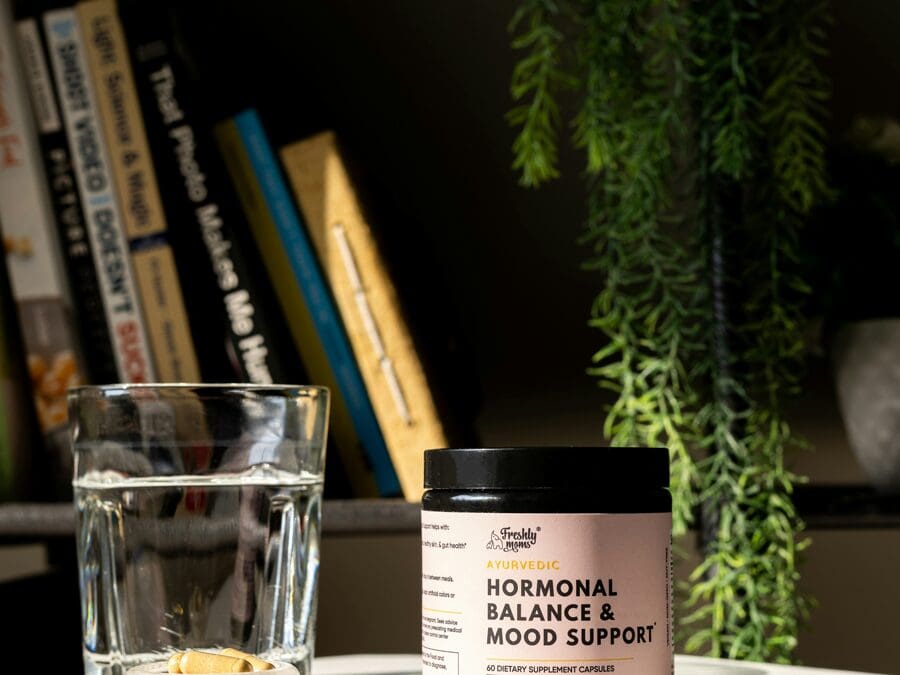Menopause and its earlier phase, perimenopause, are huge transitions in a woman’s life. They’re marked by hormonal fluctuations that can have significant impacts on mental health. Understanding the relationship between these hormonal changes and depression is important for getting help.
What are perimenopause and menopause?
Perimenopause is the period leading up to menopause, and usually comes with irregular menstrual cycles and fluctuating hormone levels. This phase can last a decade or more, typically beginning in a woman’s 40s, but sometimes starting earlier. Menopause is officially recognized after 12 consecutive months without a menstrual period.
Hormonal fluctuations and their impact on mental health
During perimenopause, estrogen and progesterone levels unpredictably fluctuate, leading to various physical and emotional symptoms. Estrogen, aside from regulating the reproductive system, plays an important role in brain health, influencing mood regulation, cognition, and overall mental health.
As estrogen levels decline, women can have mood swings, irritability, anxiety, and depression. These symptoms are directly linked to hormonal changes affecting neurotransmitter systems in the brain.
Progesterone levels may also decline during perimenopause, potentially leading to symptoms such as irregular periods, heavy bleeding, and mood changes. Signs of low progesterone include a short luteal phase, spotting before periods, prolonged bleeding, heavy periods, PMS, new or worsening migraines, decreased fertility, trouble sleeping and increased anxiety or depression.
Hormone levels typically stabilize at lower levels after menopause with estrogen and progesterone production decreasing significantly however some women may still experience lingering symptoms like mood changes or hot flashes.
Increased risk of depression during perimenopause
Research shows that women are more likely to develop depression during perimenopause compared to premenopausal stages. A study highlighted that the risk for major depressive episodes increases during this transition, even among women without a prior history of depression.
Researchers attribute this increased risk to hormonal fluctuations, sleep disturbances, and the psychosocial challenges associated with aging and changing life roles.
Recognizing the symptoms
Symptoms of perimenopause and menopause go beyond hot flashes and night sweats. Women may experience:
- Mood changes: Increased irritability, anxiety, and feelings of sadness.
- Cognitive difficulties: Episodes of brain fog, memory lapses, and difficulty concentrating.
- Sleep disturbances: Insomnia or disrupted sleep patterns, which contribute to fatigue and mood disorders.
- Physical symptoms: Joint pain, weight gain, and decreased libido.
These symptoms can significantly impact daily functioning and quality of life. However, they are often misdiagnosed or dismissed, which means women often do not get the right treatment. For instance, perimenopausal symptoms like mood swings and sleep issues are sometimes mistaken for primary depressive disorders, resulting in prescriptions for antidepressants rather than addressing their underlying hormonal causes. Issues such a low libido may be dismissed as a relationship problem rather than due to hormonal changes such as decreasing testosterone levels.
Managing perimenopausal and menopausal depression
- Hormone therapy: Hormone replacement therapy (HRT) can alleviate mood disturbances and physical symptoms by stabilizing hormone levels. However, it’s important to consult with a menopause trained healthcare provider to weigh the benefits and risks, since there are many HRT options and HRT may not be recommended for those with certain health conditions or history.
- Lifestyle modifications: Regular physical activity, a balanced diet, and adequate sleep are all crucial for maintaining mental health. Exercise, in particular, has been shown to improve mood and reduce anxiety.
- Social connections: Keeping up with social networks, attending support groups, and engaging in community activities can reduce feelings of isolation.
- Education and awareness: Understanding that mood changes during this period are common and often hormonally driven can reduce self-blame and encourage more proactive management.
- Psychological support: Many psychotherapeutic approaches can help women develop coping strategies, address negative thought patterns, explore self esteem and identity shifts, and manage stress associated with this major life transition.
Breaking the stigma
Social stigma around menopause often leads women to suffer in silence. Since we don’t talk about menopause, women often feel their symptoms are a natural part of aging that must be endured. This mindset can prevent them from seeking help and accessing treatments that could significantly improve their quality of life. It’s important to start normalizing conversations and educational initiatives about menopause and mental health.
Some healthcare providers may not be up-to-date with the latest research on women’s health. As a result, many women report their doctors dismissing perimenopause symptoms or misdiagnosing them as unrelated conditions. Outdated information and misconceptions about Hormone Replacement Therapy (HRT) can further prevent women from receiving the appropriate care. By breaking the stigma surrounding menopause, we can better inform and empower women to advocate for the care they deserve.
Getting help
If you’re perimenopausal or menopausal and struggling with your mental health, it’s important to reach out for support. Schedule a consultation with us today, and we’ll create a personalized treatment plan tailored to your needs. We’ll work closely with your medical providers to ensure a comprehensive approach to your mental health care. Together, we can help you feel more like yourself again.
Home
Services
Insurance
Therapists
Contact
Mindworthy Therapy
info@
mindworthytherapy.com
847-497-5730
1933 N. Meacham Rd.
Suite 200
Schaumburg, IL 60173

Designed By:
Farm it Out! Design, Inc.

